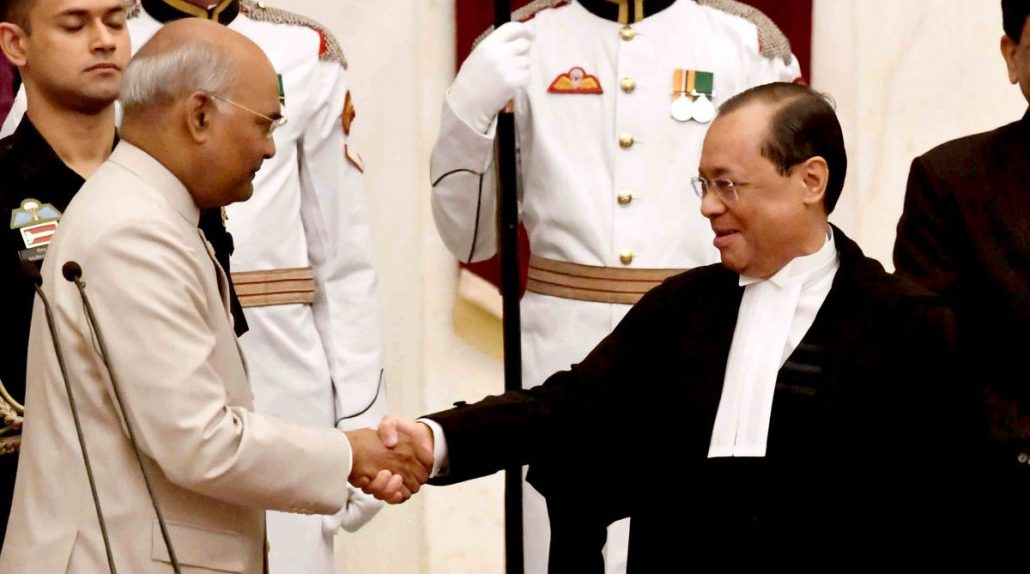
President Ram Nath Kovind administered the oath to Justice Gogoi at a ceremony which took place in Rashtrapati Bhavan’s Darbar Hall.
Justice Gogoi’s father Sh. Keshab Chandra Gogoi was a Chief minister under the Indian National Congress regime in the state of Assam in the year 1982.
President Ram Nath Kovind administered the oath to the 63-year-old Justice Gogoi at a ceremony which took place in Rashtrapati Bhavan’s Darbar Hall.
Justice Gogoi’s father Sh. Keshab Chandra Gogoi was a Chief minister under the Indian National Congress regime in the state of Assam in the year 1982.
Justice Gogoi will have a tenure of a little over 13 months and would retire on November 17, 2019.
He was appointed as a judge of the Supreme Court on April 23, 2012.
Born on November 18, 1954, Justice Gogoi was enrolled as an advocate in 1978. He practised in the Gauhati High Court on constitutional, taxation and company matters.
He was appointed as a permanent judge of the Gauhati High Court on February 28, 2001. On September 9, 2010, he was transferred to the Punjab and Haryana High Court.
He was appointed as Chief Justice of Punjab and Haryana High Court on February 12, 2011.
Justice Gogoi was one of the four Supreme Court judges who had revolted against CJI Misra earlier this year. The other three were Justice J. Chelameswar, Justice Madan B. Lokur and Justice Kurian Joseph.
In an unprecedented move, the four senior-most judges of the apex court had held a press conference in January this year raising, among other things, questions over assigning cases to different judges by the CJI.
Earlier in September, CJI Misra had recommended Justice Gogoi as his successor as per the established practice of naming for the post the senior-most judge after the CJI.
The appointment of members of the higher judiciary is governed by the Memorandum of Procedure, which says “appointment to the office of the Chief Justice of India should be of the senior-most judge of the Supreme Court considered fit to hold the office”.
The protocol stipulates that the law minister will, at an appropriate time, seek recommendation of the outgoing CJI for the appointment of a successor. Once the CJI makes the recommendation, the law minister puts it before the Prime Minister who then advises the President on the matter.
After President Ramnath Kovind signed warrants of Justice Gogoi’s appointment , a notification was issued announcing his appointment.



